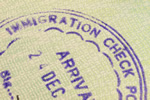Vision20 30 weaning Saudi off expat labour

Vision20 30 weaning Saudi off expat labour
Some nine million expats are living and working in the desert kingdom, many of whom are oil and gas sector professionals who’ve made Saudi their permanent home. The recently- introduced Vision 20-30 is aimed at reducing the country’s dependence on oil revenues as well as tackling its longstanding unemployment crisis. In recent months, moves have been made to reduce Saudi’s dependence on expat skills. At present, much seems to be focused on low-waged workers, but there’s no guarantee expat professionals won’t be included at some stage in the future.
The first move took place earlier in 2017 and was aimed at reducing the expat work visa duration from two years to one year. One aim was to entice more young Saudi graduates into employment, and the plan seems so far to have been a limited success. Secondly, expat taxes were brought in last July for the first time ever at a rate of $26 monthly for every expat worker. The amount is due for an annual increase until 2020, and has affected literally millions of lower-paid workers who depended on their salaries to support their families back in the home country. The levy, even at its present level, is now seen as unaffordable for the vast majority of expat workers in Saudi.
A ‘Full Saudization’ plan is due to kick in three years from now, and is intended to force employers to sack every expat public sector worker in the kingdom, an estimated number of around 70,000. The majority are low-salaried workers, and no plan to replace them with possibly reluctant Saudi labour has as yet been announced. In addition, a dozen retail professions are now forbidden to non-Saudi nationals, including sales jobs of any kind as well as those in Saudi shopping malls. Social media users came out in opposition to the plan, with no effect.
In a bid to deal with a lack of employable skills in the Saudi unemployed, short-tern training courses were set up for both men and women. Subjects included computing and household electronics and the course are free to Saudi applicants. Of all the new plans, this seems to be the most popular with young Saudis. Last year, those working illegally were allowed to leave without penalties but, at the end of 2017, expats caught working illegally will now face strict punishment. A reward of $13,000 is being offered to those reporting illegals to the authorities.
Related Stories:
- Is Kuwaitization the unintended result of the oil price crash? - July 20, 2020
- Expats in Malaysia still banned from overseas travel - July 17, 2020
- HSBC Asia to cut back on internal expat relocations - July 16, 2020
- Tips on integrating for newly-arrived expats - July 15, 2020
Latest News:
- Tips on a trouble-free relocation as an expat overseas - July 20, 2020
- Expats find peace in the covid-19 refuge of Dahab town - July 20, 2020
- Is Kuwaitization the unintended result of the oil price crash? - July 20, 2020
- Expats unhappy abut changes to Korean points-based visa system - July 17, 2020
- Chiang Mai and Bangkok no longer bargain locations for expats - July 17, 2020
- Expats in Malaysia still banned from overseas travel - July 17, 2020
- Vietnam welcomes expats to its safe, affordable lifestyle - July 16, 2020
- Asian tiger economies reach out to expats in Hong Kong - July 16, 2020
- HSBC Asia to cut back on internal expat relocations - July 16, 2020
- Tips on integrating for newly-arrived expats - July 15, 2020


